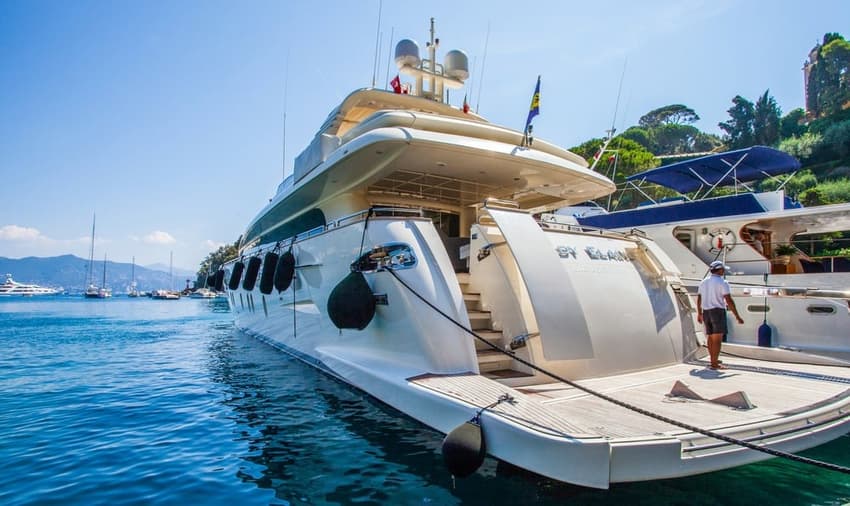The little-known tax rule that's got the super-rich flocking to Italy

Wealthy non-Italians are moving to Italy in droves after the country introduced a flat tax on even the biggest of overseas fortunes.
Estate agents in some of Italy's most sought-after destinations say they're now selling more luxury properties than ever before, with the tax break attracting some of the world's wealthiest people to the country.
Introduced in 2017 as part of a budget package hoped to attract wealthy investors to Italy, the “substitutive tax” rule for “resident non-domiciled” taxpayers allows anyone who has not lived in Italy for nine out of the last 10 years to apply to pay a flat €100,000 annual tax on all income generated outside Italy.
Any income generated within Italy would still be subject to regular Italian tax rules.
When the rule was introduced there was an immediate spike in interest from wealthy buyers looking to relocate to Italy for tax purposes, one estate agent told The Guardian.
Demand faltered slightly following the 2018 election amid fears that the country's new populist government would scrap the rule.
But the government has now confirmed the flat tax for the super-rich is here to stay for at least another fifteen years.
 Property on the Italian island of Capri is highly sought after by the super-rich. Photo: Depositphotos
Property on the Italian island of Capri is highly sought after by the super-rich. Photo: Depositphotos
Italy's tax scheme has been compared to similar rules in Jersey, the Isle of Man, or Switzerland.
A person is considered an Italian resident for tax purposes if they are in the country for more than 183 days, or six months.
The flat tax also applies to inheritance payments and money brought into Italy from overseas.
The benefits can be extended to applicants' family members for an annual charge of €25,000 per person.
READ ALSO: The richest Florence families in 1427 are still rich today
Some 350-400 people applied to move their tax domicile to Italy and take advantage of the law in 2017 and 2018, according to Italian government figures.
Fabrizio Pagani, until recently the chief of staff to the Italian minister of finance, described the applicants as “people from the UK, Switzerland, Russia, from the US, the usual suspects”.
Estate agents say the multi-million euro properties most sought after by Italy's wealthy new residents tend to be concentrated in popular holiday destinations, such as Florence, Milan, Lake Como, Rome, Capri and the Amalfi coast.
Tax avoidance costs governments worldwide about $650 billion (€583 billion) per year in lost revenue, according to International Monetary Fund estimates.
Comments
See Also
Estate agents in some of Italy's most sought-after destinations say they're now selling more luxury properties than ever before, with the tax break attracting some of the world's wealthiest people to the country.
Introduced in 2017 as part of a budget package hoped to attract wealthy investors to Italy, the “substitutive tax” rule for “resident non-domiciled” taxpayers allows anyone who has not lived in Italy for nine out of the last 10 years to apply to pay a flat €100,000 annual tax on all income generated outside Italy.
Any income generated within Italy would still be subject to regular Italian tax rules.
When the rule was introduced there was an immediate spike in interest from wealthy buyers looking to relocate to Italy for tax purposes, one estate agent told The Guardian.
Demand faltered slightly following the 2018 election amid fears that the country's new populist government would scrap the rule.
But the government has now confirmed the flat tax for the super-rich is here to stay for at least another fifteen years.
 Property on the Italian island of Capri is highly sought after by the super-rich. Photo: Depositphotos
Property on the Italian island of Capri is highly sought after by the super-rich. Photo: Depositphotos
Italy's tax scheme has been compared to similar rules in Jersey, the Isle of Man, or Switzerland.
A person is considered an Italian resident for tax purposes if they are in the country for more than 183 days, or six months.
The flat tax also applies to inheritance payments and money brought into Italy from overseas.
The benefits can be extended to applicants' family members for an annual charge of €25,000 per person.
READ ALSO: The richest Florence families in 1427 are still rich today
Some 350-400 people applied to move their tax domicile to Italy and take advantage of the law in 2017 and 2018, according to Italian government figures.
Fabrizio Pagani, until recently the chief of staff to the Italian minister of finance, described the applicants as “people from the UK, Switzerland, Russia, from the US, the usual suspects”.
Estate agents say the multi-million euro properties most sought after by Italy's wealthy new residents tend to be concentrated in popular holiday destinations, such as Florence, Milan, Lake Como, Rome, Capri and the Amalfi coast.
Tax avoidance costs governments worldwide about $650 billion (€583 billion) per year in lost revenue, according to International Monetary Fund estimates.
Join the conversation in our comments section below. Share your own views and experience and if you have a question or suggestion for our journalists then email us at [email protected].
Please keep comments civil, constructive and on topic – and make sure to read our terms of use before getting involved.
Please log in here to leave a comment.